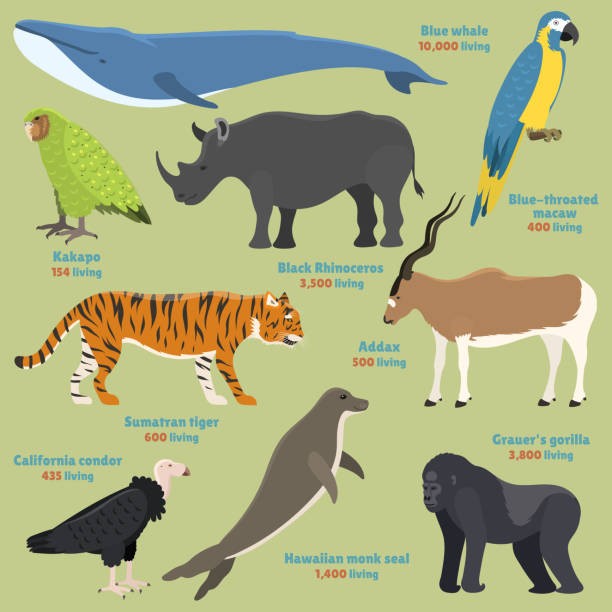久しぶりのエッセイ
Should more be done to protect endangered species?
1. あなたの意見(賛成・反対)
2. 理由(例:生態系のバランス、倫理的な責任、人間の活動が与える影響など)
3. 具体的な例(例えば、特定の絶滅危惧種の保護活動の成功例や失敗例)
4. 結論
エッセイの形式
• イントロダクション:トピックについての概要とあなたの立場を述べる。
• 本論:2〜3の具体的な理由と例を挙げて、あなたの意見を支持する。
• 結論:エッセイをまとめ、再度意見を強調する。
In the wake of the Industrial Revolution and modernization, Japan has witnessed significant environmental destruction. This has led to the loss of habitats for many endangered species. It is clear that we, as human beings, are responsible for restoring their habitats, thereby ensuring their protection and preservation.
There could be many reasons to protect endangered species. Failing to take appropriate action to protect them will lead to a decline in species, negatively impacting biodiversity. Therefore, maintaining ecological balance is essential for conservation efforts.
Secondly, once endangered species become extinct, we have no way to bring them back. Gene editing and cloning technology cannot fully replicate the natural reproductive processes of these species.
In addition, most endangered species are at risk of extinction not through natural selection, but due to human activity. As humans are directly responsible for their endangerment, it is our duty to take measures to protect them.
Japanese wolves and Japanese otters are believed to have become extinct in the late 19th and in the early 20th century respectively in Japan because they lost their habitats due to the development of land and excessive hunting. In the late 20th century, the last Japanese crested ibis died on Sado Island in Niigata, which marked extinction of ibises in Japan. However, a pair of ibises was brought from China, and breeding efforts were carefully monitored. Today, the population of ibises is steadily growing and will continue to grow.
The success of ibises’ reproduction primarily lies in human efforts, although it took many years of research and struggles. Had we cared for and protected such endangered species, we wouldn’t have had to worry about reproducing them from the closest relatives of extinct species. In conclusion, we must abandon the egocentric belief that the human race reigns supreme on this planet. Instead, we should learn more to live with surrounding nature in harmony while striking a balance between economic development and environmental protection.
1. あなたの意見(賛成・反対)
2. 理由(例:生態系のバランス、倫理的な責任、
3. 具体的な例(例えば、
4. 結論
エッセイの形式
• イントロダクション:
• 本論:2〜3の具体的な理由と例を挙げて、
• 結論:エッセイをまとめ、再度意見を強調する。
In the wake of the Industrial Revolution and modernization, Japan has witnessed significant environmental destruction. This has led to the loss of habitats for many endangered species. It is clear that we, as human beings, are responsible for restoring their habitats, thereby ensuring their protection and preservation.
There could be many reasons to protect endangered species. Failing to take appropriate action to protect them will lead to a decline in species, negatively impacting biodiversity. Therefore, maintaining ecological balance is essential for conservation efforts.
Secondly, once endangered species become extinct, we have no way to bring them back. Gene editing and cloning technology cannot fully replicate the natural reproductive processes of these species.
In addition, most endangered species are at risk of extinction not through natural selection, but due to human activity. As humans are directly responsible for their endangerment, it is our duty to take measures to protect them.
Japanese wolves and Japanese otters are believed to have become extinct in the late 19th and in the early 20th century respectively in Japan because they lost their habitats due to the development of land and excessive hunting. In the late 20th century, the last Japanese crested ibis died on Sado Island in Niigata, which marked extinction of ibises in Japan. However, a pair of ibises was brought from China, and breeding efforts were carefully monitored. Today, the population of ibises is steadily growing and will continue to grow.
The success of ibises’ reproduction primarily lies in human efforts, although it took many years of research and struggles. Had we cared for and protected such endangered species, we wouldn’t have had to worry about reproducing them from the closest relatives of extinct species. In conclusion, we must abandon the egocentric belief that the human race reigns supreme on this planet. Instead, we should learn more to live with surrounding nature in harmony while striking a balance between economic development and environmental protection.



